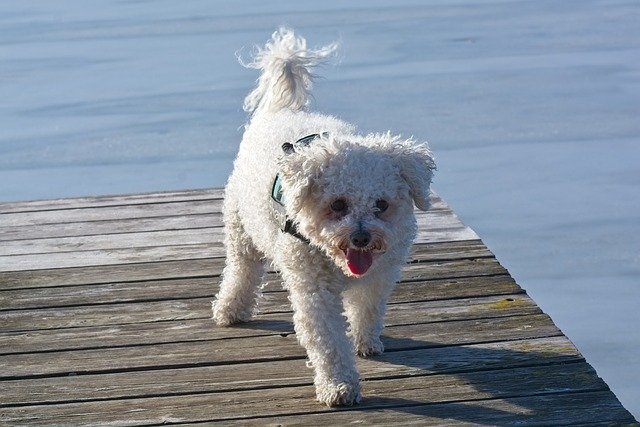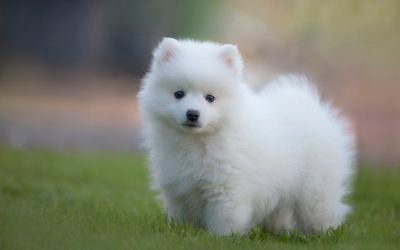The 6 best small therapy dogs. Most dog owners can attest that having a dog has beneficial effects on their mental and physical well-being.
In fact, studies have shown that spending time with a dog is beneficial for your health in many ways, including a reduction in blood pressure, an increase in cardiovascular health, and the release of endorphins, which have a calming effect on the brain.
The relationship between humans and dogs is undeniable, and this little dog’s fluffy coat, wagging tail, and cute expressions are guaranteed to lift our spirits.
Some small dogs even show signs of sympathy by showering us with additional love and attention when we’re feeling depressed. Given these qualities, dogs are great candidates for paying visits to elderly or lonely people.
Physical pain, mental anguish, and emotional depression are all things that therapy dogs can help alleviate. They have the potential to be extremely helpful in nursing homes and care settings.
Consider adopting a dog from a local shelter to become your therapy dog. See my article on Why Adopt a Dog for details.
If looking to travel with them, check out our Amtrak Emotional Support Animal Guidelines.
While any dog can be trained to be a therapy dog, some breeds are naturally more suited to the role than others.
Read on to learn about the best small therapy dogs we recommend most highly. A dog from this list will likely be the perfect fit for your household.
French Bulldog

The French Bulldog is fully equipped to raise your spirits and make you smile. These canines are kind and have some clever ways of getting your attention.
Their ability to blend in anywhere is a beautiful counterpoint to their generally tranquil demeanor. It doesn’t matter if you’re not taking your Frenchie for walks; he or she will still love your company. It’s very suited to an indoor existence and finds indoor games to be very enjoyable.
Due to their intelligence and their sensitivity to changes in their human friends’ moods and actions, the Frenchie can be among the most effective therapy dog breeds with the right training.
There are some health issues with French Bulldogs that you should be aware of but most of them pertain to many breeds.
Cavalier King Charles Spaniel

A miniature Cavalier King Charles spaniel would make a wonderful therapy dog. The Cavalier King Charles spaniel defies the stereotype of the grouchy small dog.
This small therapy dog breed is known for its warm personality and good temperament among kids. They’re not hyperactive, but they do like to play, and they’re small enough to fit on a person’s lap.
Even more so than most other breeds of dog, King Charles spaniels are easy to teach proper manners. Long hair does necessitate combing at least once a week. This breed’s friendly and outgoing demeanor makes it a good candidate for obedience training.
They are also good candidates for a fun, loving, and reassuring therapy dog because they seek out their owner’s attention and spend as much time with them as possible.
The Cavalier King also makes our list of best small emotional support dogs.
Bichon Frise

The Bichon Frise is another adorable best small therapy dogs. When fully trained, these little dogs are welcome in any setting, including hospices, schools, hospitals, and retirement communities.
Their normally happy, mellow demeanor makes them a pleasure to be around in a therapeutic situation. The Bichon Frise are known to be curious and joyful dogs.
They have a strong sense of family and community, and they treat everyone as a friend. They are great with kids since they have a lot of patience, are kind, and aren’t afraid to try new things.
If you’re looking for a loving therapy dog, a Bichon Frise is a fantastic option. The Bichon Frise is a breed of dog that is known for being both incredibly smart and incredibly happy.
This dog breed has the added perk of being one of the best non-shedding small dogs.
Yorkshire Terrier

Also on our list of best small breed service dogs, the Yorkshire Terrier is empathetic, social, and will do anything for its owner’s happiness. When a Yorkshire Terrier is sitting on your lap and begging for attention, it’s hard to focus on anything else.
This makes them perfect small therapy dogs. Yorkshire terriers are known for their ability to make anxious individuals laugh and relax. Therefore, they have the potential to become excellent therapy dogs if given the right training.
Their small stature makes them convenient to use as a small therapy dogs and adaptable to any setting. Many owners of Yorkshire terriers have their pets learn to use button-pressing devices to help them take medication or contact help in an emergency.
The Yorkshire Terrier is also in our group of hypoallergenic low maintenance dogs.
Beagle

As social creatures, beagles thrive when they are the center of attention. The more people and the larger the room, the better. So, when several individuals need help at once, they are extremely effective.
Their services are most frequently needed in educational institutions and nursing facilities.
On the other hand, beagles have a reputation for being independent thinkers who don’t always do as they’re told.
Beagles have a sociable personality, love being with their human companions, and thrive on the attention they receive. These dogs are great for therapy work with children because of their calm demeanor and enthusiasm for human companionship.
Beagles are incredibly intelligent and independent; therefore, they may get into trouble if you don’t train them properly. A therapy dog, especially a beagle, is a rare breed, so if you see one at work, you’ll recognize it immediately.
Pug

Although the pug might not be the first dog breed that comes to mind when you think of therapy dogs, they actually make great therapy companions.
Pugs are great for use as therapy animals since they are attentive and patient. A Pug will listen to your woes with a twisted small head, perked up floppy ears, and a gloomy expression on its face.
They will do nothing except stare at you blankly while licking their lips and smiling. Pugs are too little to serve as service dogs; therefore, they can’t do activities like item retrieval, room cleaning, or pressure treatment, but they do make great therapy dogs.
Moreover, due to their diminutive stature, they can be less threatening to young children and apprehensive adults (which is common for those who receive therapy from therapy dogs).
They are friendly and affectionate, making them perfect as a therapy animal and easily on this list of best small therapy dogs. They have a soft and pleasant demeanor around kids, welcoming any interaction with enthusiasm.
The Pug also makes our list of small dogs with the least health issues.
Best Small Therapy Dogs
All dogs have a place in our life, whether it be for a therapy dog, emotional support dog, service dog, or just a companion.
The best small therapy dogs we listed here will work great for just about any therapy environment and provide years of joy to those who need them.
One of the dogs that did not make our short list but deserve mention are poodles and poodle mixes. They are so smart and loving that they could make very good small therapy dogs.
Also please consider being a dog foster parent. See my article on How to Be a Foster Parent for Dogs for details.
As always, proper nutrition is an important part of a dog’s health along with feeding the recommend amount.
Click to find a wide variety of therapy dog gear that you may need.
Thank you for visiting Small Dog Living, we appreciate any feedback so leave us a comment.








0 Comments